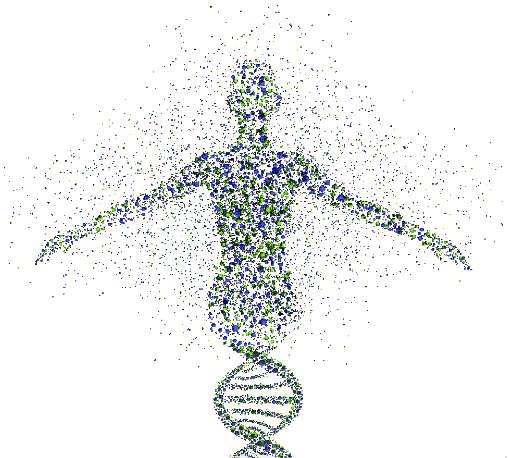Jit
Tag cloud
Our Sponsors
The DNA of a Successful Bioinformatician decoded !!!
- Public
Many blogs exist about successful bioinformatician, but this blog so far now is my personal view on characteristics of successful bioinformatician or computational biologist. Hmm … of course these views are subjective to my own personal experiences and therefore I don't claim that the view listed here is complete. As a human, I don’t take them too serious. The success must not be the only target of your work. The target is to work on your own virtues; some of those virtues are the topic of this blog.

1. Update new things continuously
As per my personal experience, it’s not always easy to work as a bioinformatician! There are couple of reasons to say that; First computational part of biology make our life’s a little harder compared to other professional categories. The fact - for instance - that the technology cycle in the bioinformatics world is very short, the actual knowledge becomes outdated in a few months or years. Therefore, we need to learn continuously - new things get important. Second, to stay on top of things we really need the strong will to be good at our job. That's probably the most important characteristic to bioinformatician. They are usually an excellent knowledge worker with great technical abilities, and have the will to be that over decades!
2. Avoid the sentence "I did not know what to do!"
In our computational biology lab, we generally face lots of technical problems. But as you know, it's impossible to know everything to do the computational biology jobs ( Yup.. because you need diverse and multidisciplinary knowledge to understand biological problems and resolve their respective solutions), therefore it's absolutely necessary that a bioinformatician finds its way through a new topic. How I typically do that is I use google and I talk to other experts in our laboratory or online biostar community to find out what they think. "I did not know what to do!" should not be an argument for us.
3. To make oneself useful
Several time it does happen, you finished our task earlier than expected; in such cases if you have some time left then: Take a coffee and play chess; reversi, etc. In my case I take a rest. Afterwards I think about what I could do that helps the team to achieve its targets, 'cause some of my team mates probably didn't finish! (at least if I didn't met them at coffee bar !!)
4. Care for all
During my rigorous research duration; I attended several workshop organized by my University departments. I had a discussion with other research fellow, professors; I generally ask … what it really takes to make a team successful or to be a successful research leader. They always said: "Well, you need some caring people!" I think there is a lot truth in that statement. If we do not care about quality, timelines, good team culture, respectful communication (!!), clean code, if all this doesn’t matter to us, then I believe the probability is higher that we fail in research and analysis.
5. Be good with people
Because bioinformatician and computational biologist jobs typically involves to work in a (most wanted J cross-departmental!) team, therefore it's important that we're (more or less) good in dealing with other individuals. Everyone have their own strengths and weaknesses, just like us. It's important to treat all the research team mates with respect, regardless of their technical competence or contributions. Of course, sometimes people deserve a clear statement (!!!), but try to do these things one-on-one. Make sure nobody loses his face. Attend the meetings at the coffee bar; be good at table top soccer and go out once in a while to have a beer with your team. You know what I'm talking about.
At the end of a week I look back and I ask myself what I have produced. This could be paperwork, community days or (best!!) programming code. Always remember there is always a solution to a problem. Most of the times there are at least three solutions. So, don’t just blame, suggest a solution.
That's it. I am looking forward to your thoughts and comments!
- BioinfoLab
3304 days ago
Abhimanyu SinghResearchLabs posts - Research Fellow Bioinformatics at Central University of Rajasthan
3356 days ago
AashaOpportunity posts - n50PlottingTools
3349 days ago
Jitbookmark - destruct
3328 days ago
Jitendra Prajapatibookmark - List of Bioinformatics Software Tools for Next Generation Sequencing
3317 days ago
Jitendra Prajapatitop level page - REAPR: a universal tool for genome assembly evaluation
3291 days ago
Jitendra Prajapatibookmark - Bioinformatics Algorithms
4287 days ago
Jitendra Narayantop level page - List of pharmacogenomics companies in India
4262 days ago
Jitendra NarayanPages

Comments
Thanks for the overview ... I found this article also very interesting http://scfbm.biomedcentral.com/articles/10.1186/1751-0473-7-3